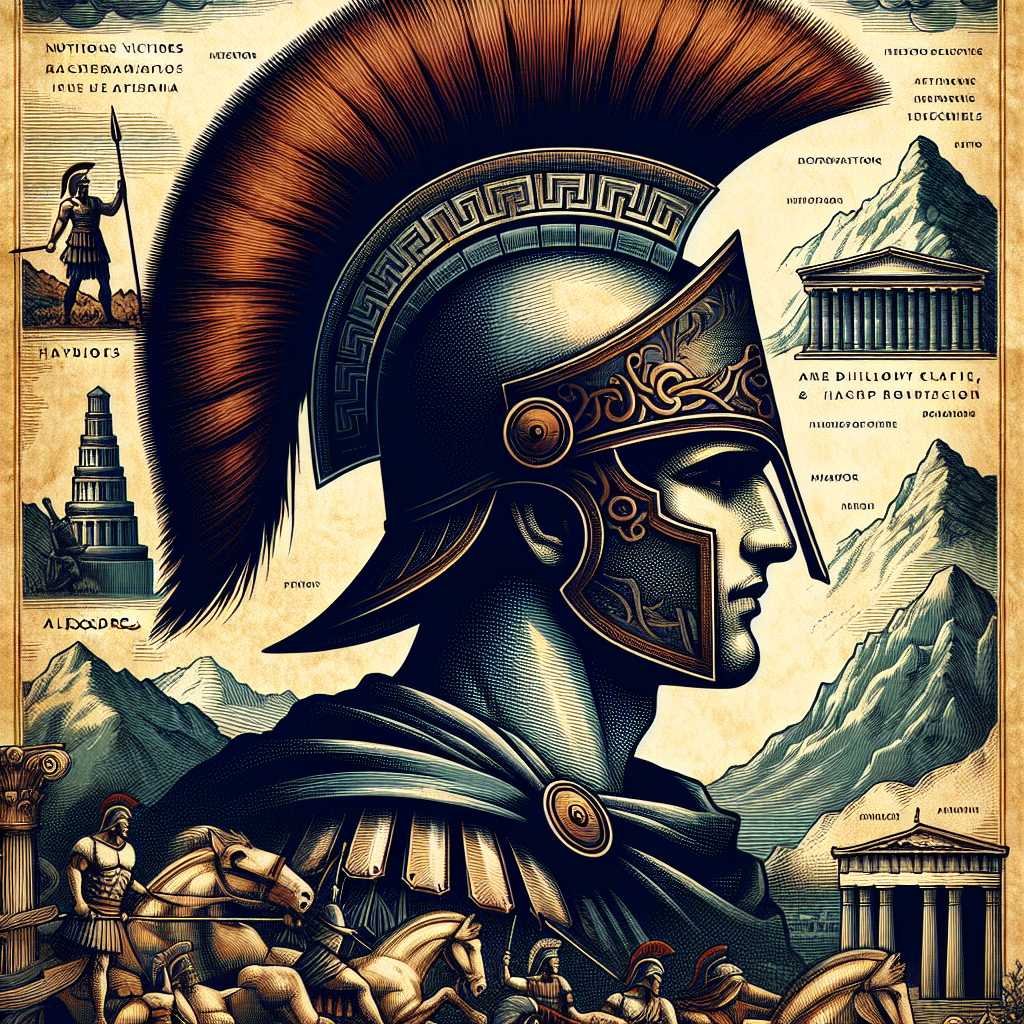Alexander the Great: Conqueror, King, and Legend
Alexander the Great, born in 356 BC, is one of history’s most renowned conquerors. His military intelligence, insatiable hunger for conquest, and the cultural exchange that his vast empire facilitated have left an indelible mark on the world. This article seeks to delve into the life of Alexander the Great, examining his early life, military campaigns, impact on culture, legacy, and the controversies surrounding his figure.
Early Life and Ascension to Power
Alexander was born in Pella, the ancient capital of Macedonia, to King Philip II and his fourth wife Olympias. From a young age, Alexander showed signs of brilliance and a compelling personality. Tutored by the philosopher Aristotle, he was educated in literature, science, medicine, and philosophy – education that forged the mind of a future leader.
His ascension to power came at the young age of 20 due to the assassination of Philip II. Alexander inherited a kingdom that was powerful militarily but fraught with political intrigue and bordered by states that were less than friendly. Early in his reign, Alexander worked quickly to consolidate his power and subdue uprisessions in regions within his domain.
Military Campaigns and Expansion of the Empire
Alexander’s military campaigns were characterized by audacious strategies and decisive actions. His first goal was the conquest of Persia, ruled by Darius III at that time. The campaign began in 334 BC with a series of battles that led to the fall of major Persian satrapies.
Under his rule, the Macedonian army continued to achieve unprecedented victories including key battles such as Issus in 333 BC, Tyre in 332 BC, and finally Gaugamela in 331 BC where Darius III fled the battlefield setting the stage for the ultimate disintegration of the Persian Empire. His campaign continued through conquering Egypt where he founded Alexandria, one of many cities named after him, before moving east towards India.
The expansion reached its zenith at the river Hydaspes (modern-day Jhelum) in India against King Porus. Even though Alexander was victorious, the battle left his army exhausted. Their resistance to continue along with Alexander’s respect for their service marked the end to further expeditions eastward and consequently returning towards Babylon.
Cultural Implications and Hellenization
Through his quest for domination, came cultural assimilation and diffusion – what is often referred to as ‘Hellenization’. In each region he conquered, Greek culture merged with the local customs creating an eclectic mix that enriched societies.
The spread of Greek language became prominent across Alexander’s territories facilitating trade and communication. Libraries and centres of learning were established culminating in a remarkable cross-cultural exchange from Athens to as far as modern-day Afghanistan.
The importance of cosmopolitanism evidenced by numerous marriages between Macedonians and Persians also stands as testimony to Alexander’s aims for his empire. This policy not only secured loyalty among conquered people but also celebrated diversity through these blended families.
Death and The Partitioning of The Empire
In 323 BC, at just 32 years old, Alexander died in Babylon under mysterious circumstances that continue to be debated by historians today. His untimely death threw the empire into chaos as there was no clear successor.
Consequently, this impelled a period known as ‘The Wars of the Diadochi’ where Alexander’s generals carved out kingdoms from the empire for themselves leading to lasting strife but also entrenching Hellenic influence across these fragmented realms. Over time, these territories became Hellenistic states which retained aspects of Greek culture for centuries.
Legacy
Years after his death, Alexander is still revered as an icon of military genius. He provided a template upon which subsequent military leaders patterned their conduct. His name epitomizes visions of vast empires obtained through conquest and ambition that few if any have ever matched.
Beyond military achievements however lies Alexander’s contribution to cultural metamorphosis as well as fostering advancements in sciences through commissioned researches by his alumni that traversed his empire.
Alexander’s Character and Historical Viewpoints
Throughout history, Alexander has been portrayed as both a hero and as a ruthless conqueror; his character remains multifaceted to historians today.
Debate exists over how progressive he was – some view Alexander’s policies positively regarding cultural integration while others point out atrocities during wars which reflect oppression and egotism. Nevertheless his vision and charisma united a broad spectrum of people like never before leaving behind an extraordinary tale intertwined with fabled stories accentuating both glory and tragedy.
